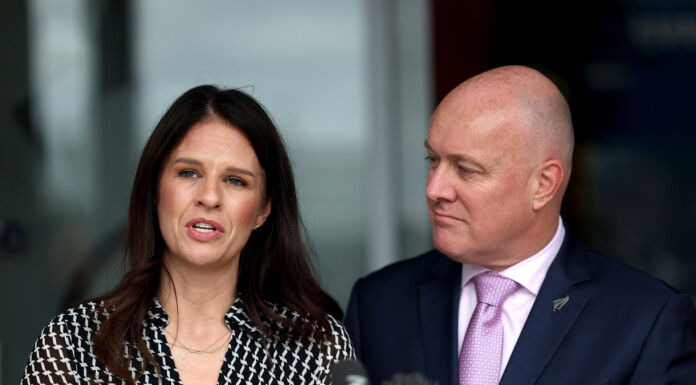There are arguable reasons to be optimistic about aspects of the new coalition government’s approach to education.
For starters, the new Minister of Education, Erica Stanford, is widely considered to be one of the most capable of the new ministerial intake and was observably on top of the details of her portfolio when she was National’s education spokesperson.
Those of a more ‘progressive’ disposition who fear that the agreements reached with Act and NZ First regarding education priorities signal a return to regressive policies of the past might also take some comfort from the fact that Stanford is clearly one of her party’s more socially liberal MPs – for example, in her maiden parliamentary speech, she spoke about conservation, sustainability, marriage based on love rather than gender, and her desire for political parties work with one another to seek enduring, practical solutions.
As for the policies themselves, one would’ve thought that – as per Prime Minister Christopher Luxon’s statement when the coalition agreement was announced – the requirement for every primary and intermediate school to teach all classes one hour each of reading, writing, and maths every day, in order to “lift educational performance”, would be absolutely uncontroversial.
There are indications, however, that such a simple stipulation is far from welcome in the education sector.
Although the various education unions seem to have so far remained silent on this particular point, a news story from earlier this week suggests taking such a traditional approach – part of National’s alliterative ‘Teaching the Basics Brilliantly’ education policy – is viewed with a certain degree of hostility.
In the article, the principal of a school that caters to year 1-8 students [ie, primary and intermediate school-aged kids] is quoted as dismissing the idea of teaching the three subjects in standalone one-hour blocks as a “bit old school” on the basis that they’re already taught in a way that’s “integrated” with other study areas.
The principal also notes that “it wouldn’t be easy to implement, because the people that know the sector best, being the educators, would have some reluctance in doing that”.
He further notes that he personally wouldn’t “like to see it mandated that we had one hour a day that is just reading, one hour a day that is just writing, and one hour for maths” because “that’s not how people learn, that’s not how the curriculum works”.
But the obvious problem with that view – and the current approach to educating our kids – is that, on the evidence, the curriculum itself isn’t working.
In June, for example, the Ministry of Education assessed how a sample of 40,000 students – 70 per cent of them in year 10 – performed against NCEA standards.
More than 40 per cent of them failed in maths and writing [44.1 per cent and 43.7 per cent, respectively], while over a third [35.6 per cent] were unable to achieve the required standard in reading.
Based on those results, one might be forgiven for wondering if that particular principal – and “the educators” in general – really understand “how people learn” at all. Because such knowledge certainly isn’t being reflected in educational outcomes.
Is it too outrageous to suggest that those presiding over a system that’s woefully failing far too many of our kids shouldn’t be too quick to criticise attempts to improve the situation?


